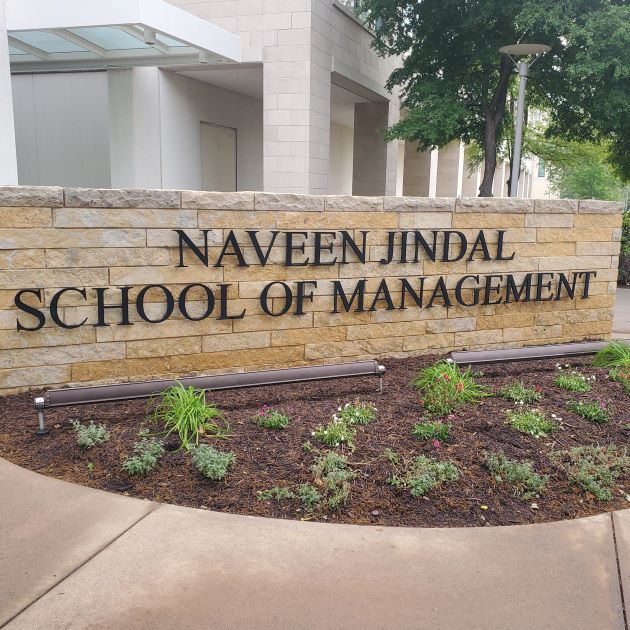Student teams from The University of Texas at Dallas showed recently that winning a business pitch competition — or launching a successful business, for that matter — requires having not just a great idea but also the preparation, passion and tools needed to stay focused and convince others — including celebrity judge Tan France from the television show Queer Eye — that the idea is worth pursuing.
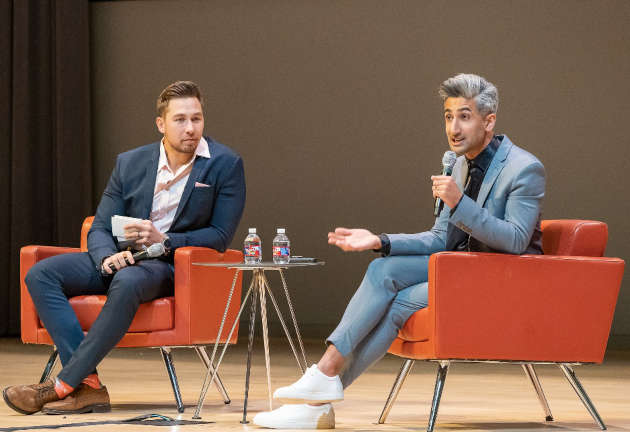
Six graduate and undergraduate teams competed for $60,000 in cash and scholarship awards at the 12th Annual UT Dallas Big Idea Competition (BIC) finals, presented by the Institute for Innovation and Entrepreneurship. The event — the largest of its kind in North Texas — was held Nov. 12 in the ATEC Lecture Hall in front of a sold-out audience of more than 1,200. Sponsors included 2017 returning title sponsor, Interlock Partners, and new presenting partner, Bioworld.
Besides serving as a judge, France, designer and style guru on the Emmy Award-winning Netflix series Queer Eye, engaged in a conversation about entrepreneurship led by the event emcee, radio celebrity J-Si Chavez of The Kidd Kraddick Morning Show. REVTECH Ventures underwrote France’s appearance.
Winning ideas ranged from a virtual reality police-training program that simulates real-world scenarios within the safe confines of a training environment, to a low-cost device that converts skin cells into specialized cells for treating diseases such as muscular dystrophy, to a smart pair of eyeglasses that can help the blind and visually impaired increase their safety and mobility.
“The amount of energy that the presenters portrayed and the preparation they put into it — you could really tell that they’d put in a lot of hard work, a lot of blood, sweat and tears. They really knew their product; they knew their business,” said D. Alex Robertson, one of seven competition judges and an associate attorney at Vinson & Elkins, another event sponsor. “That’s what really impressed me.”
The other judges were Samantha Colletti, senior vice president at Silicon Valley Bank; Bryan DeLuca, vice president of marketing and engagement at Bioworld; Nate Nelson, senior director at event sponsor Point B; School of Natural Sciences and Mathematics alumna Rebecca Poynter, BS’86; and Jason Story, partner at Interlock Partners.
Poynter, co-founder of OnPoynt Aerial Solutions and 2017 UTDesign Startup Challenge winner, made her choices based in part on how poised the students were when the judges threw curve balls at them.
“When a team has practiced for the tough questions, and they’re willing to take and answer [them], it shows that they’ve thought through their idea and [made] sure it’s got a business-worthy case in front of it,” she said.
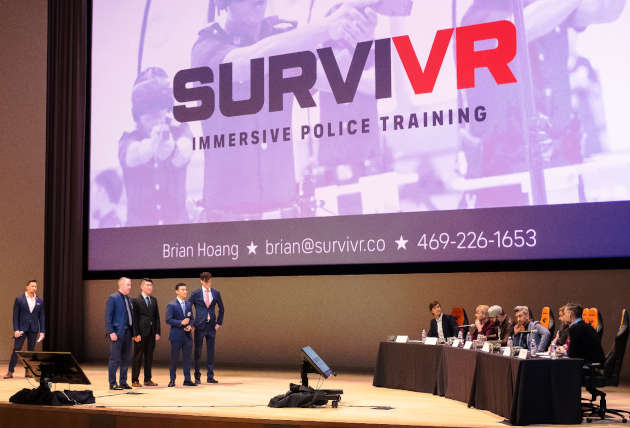
SurviVR, a virtual reality tool by startup company Immosis that trains police officers, won the $25,000 grand prize. The team consisted of School of Arts, Technology and Emerging Communication alumnus Lewis Zhang, BA’16, computer science graduate Marwan Kodeih, BS’18, and Brian Hoang, a software engineering senior at the Erik Jonsson School of Engineering and Computer Science.
“The beautiful thing about pitching is that it teaches you how to systematically break down your business, analyze it and convey it to an audience,” Hoang, who led the team’s presentation, said. “That’s what the purpose of a pitch is. It’s to persuade an audience to believe in you and your product as much as possible.”
Hoang, a recent Texas Business Hall of Fame Scholarship recipient and student in the Naveen Jindal School of Management Startup Launch program, explained that preparing for a pitch boils down to hard work and “practice, practice, practice.” He said he has worked 80 hour weeks recently, not only to prepare for BIC but also for DisrupTexas, a UT Austin student pitch competition from which his team took home a $5,000 third-place prize.
Cyto PDMS won the $10,000 second-place BIC prize for its idea for a low-cost medical device that promises to transform common human cells — such as skin cells — into specialized cells that can fight diseases such as muscular dystrophy, myocardial infarctions, Parkinson’s and liver disease.
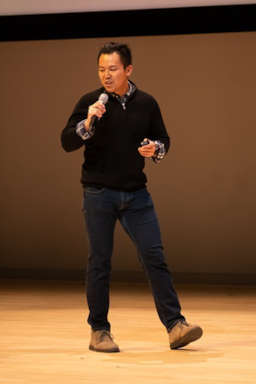
Biomedical Engineering PhD candidate Kevin Lam delivered the winning pitch for Cyto PDMS at BIC. He sees passion as a primary ingredient required to put in the hard work needed to perfect a product and the subsequent pitch.
“It doesn’t matter if you don’t have the skills [or] the knowledge,” he said, “as long as you have the passion to do what you want.”
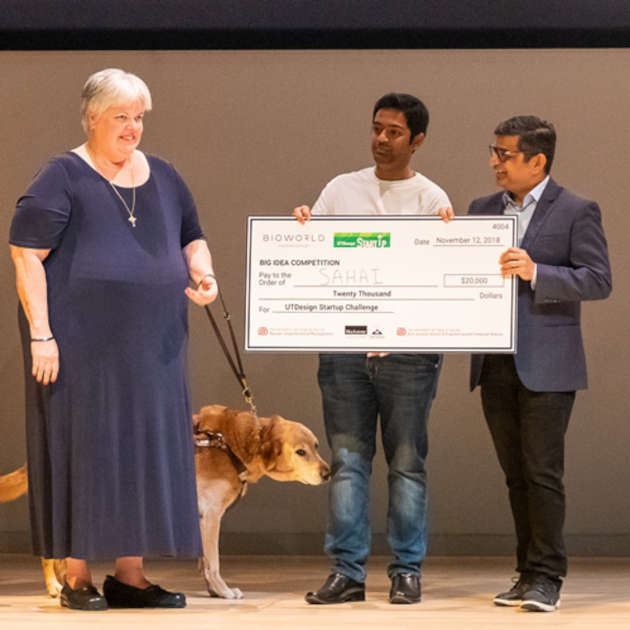
Sahai took the third-place $5,000 award for its smart eyeglasses idea that helps people with vision loss increase their mobility by reducing the risk of accidents, overhead injuries or falls.
Founder Maithreya Chakravarthula, a Jindal School BS in Information Technology and Systems 2016 graduate, was quick to point out that the resources available to all UT Dallas student entrepreneurs at the Blackstone LaunchPad (BLP) and in the Jindal School (JSOM) entrepreneurship academic programs greatly aided his efforts to prepare for his winning pitch.
“If you’re getting into business, the most important thing is being able to communicate the idea — and that is the toughest challenge,” he said. “My mentors at BLP and JSOM have been really helpful in focusing on what I needed at this point. Entrepreneurs tend to dream a lot bigger and be a lot more ambitious [than they should be]. Having mentors helps you stay grounded.”
The other finalists were Code Blue Jewelry, a company that makes fashionable medical ID bracelets, necklaces and accessories, which took home a $5,000 Innovate(her) prize for best idea from a woman-founded business; ThreadAI, a company that offers low-cost foot traffic analytics hardware and data warehousing, which won a $5,000 prize for best undergraduate idea; and Momo Shack, a company that makes Himalayan dumplings.
In addition to the main contestants, two startups led by former Comets received special recognition awards. An award for biggest social impact went to SeeBoost, a product that corrects for serious macular degeneration and other eye diseases. The company was co-founded by Russ Lemberg, BS’12. Aireal, a geospatial augmented-reality platform, founded by former JSOM student Kevin J. Hart, won the prize for Biggest Idea, for its patented, global software platform for augmented reality. Both teams took home $5,000 prizes.
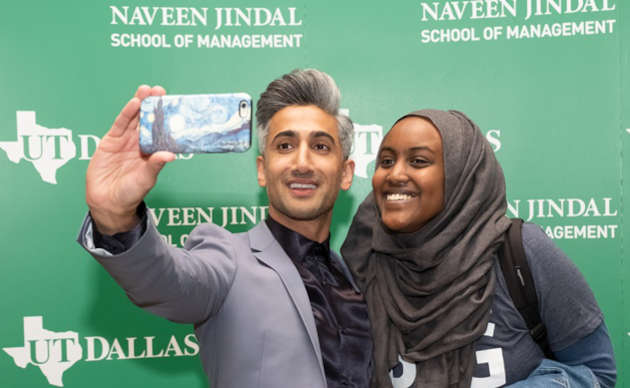
Steve Guengerich, executive director of the institute, said he was not surprised to see such a high level of competition this year. He partly attributed that to the elevated visibility of BIC and the Jindal School’s entrepreneurship programs (see Entrepreneurship Programs at JSOM Ranked By Princeton Review below) in recent years.
“We’re seeing much greater levels of traction in our contestants,” he said. “These student companies don’t just have the product or service but the customers, too — in some cases, hundreds of them. Those at the top of the judges’ list either had that greater amount of traction and had shown it through their sales and delivery execution or else had a proven MVP [minimum viable product] with a big market to come. That’s what it takes to win these days, whether you’re competing on a UT Dallas stage or in a Silicon Valley boardroom.”
Entrepreneurship Programs at JSOM Ranked By Princeton Review
Just one day after the UT Dallas Big Idea Competition, the Princeton Review, in association with Entrepreneur magazine, released its ranking of the Top Schools for Entrepreneurship in 2019. The Jindal School placed well in both the graduate and undergraduate rankings. This served as an exclamation point to a successful competition. Many of the student competitors had recently completed JSOM innovation and entrepreneurship courses.
The Princeton Review, a college admission services company that offers test preparation, published its 2019 ranking based on surveys from more than 300 schools. The Jindal School’s Master of Science in Innovation and Entrepreneurship program came in at No. 11, up from No 19 in 2018.
The Jindal School’s undergraduate Innovation and Entrepreneurship Concentration appeared on the list for the first time, debuting at No. 23.





